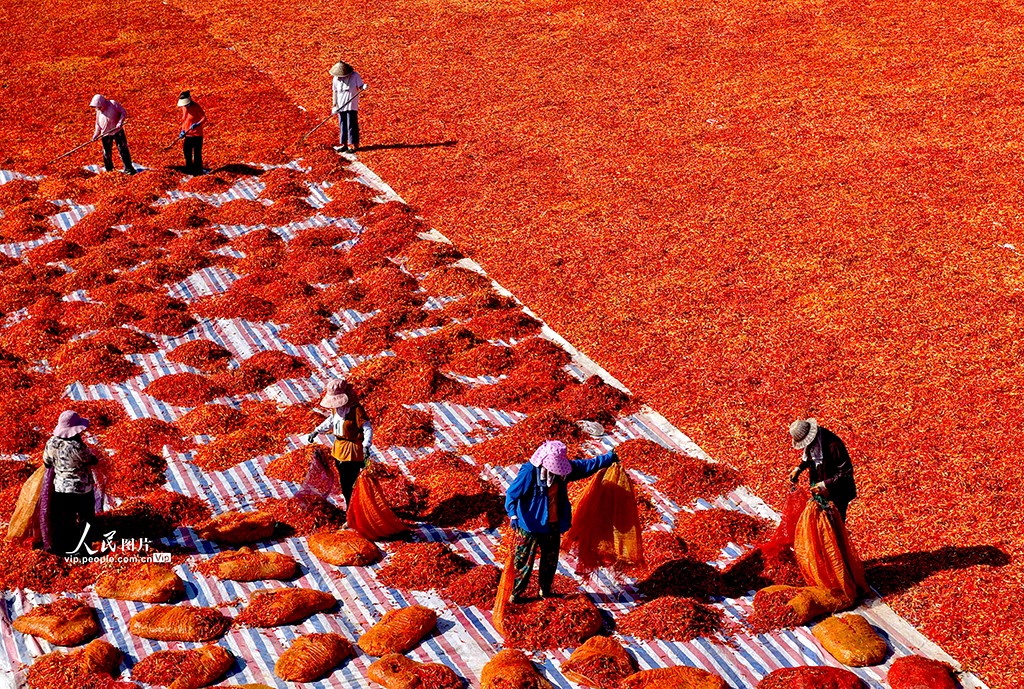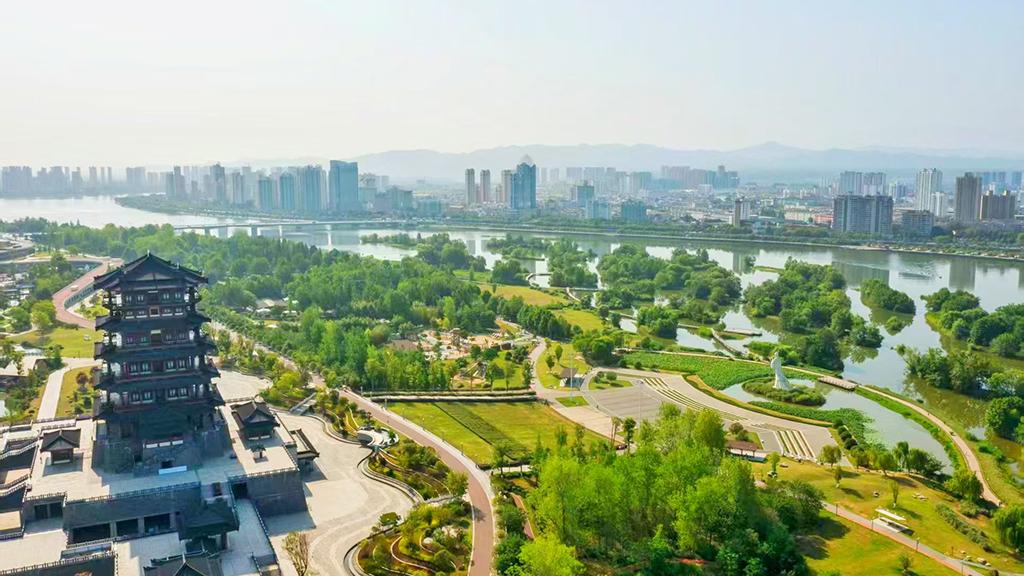Remembering history, embracing a peaceful future: A Brazilian youth's reflection?on Chinese People's War of Resistance Against Japanese Aggression
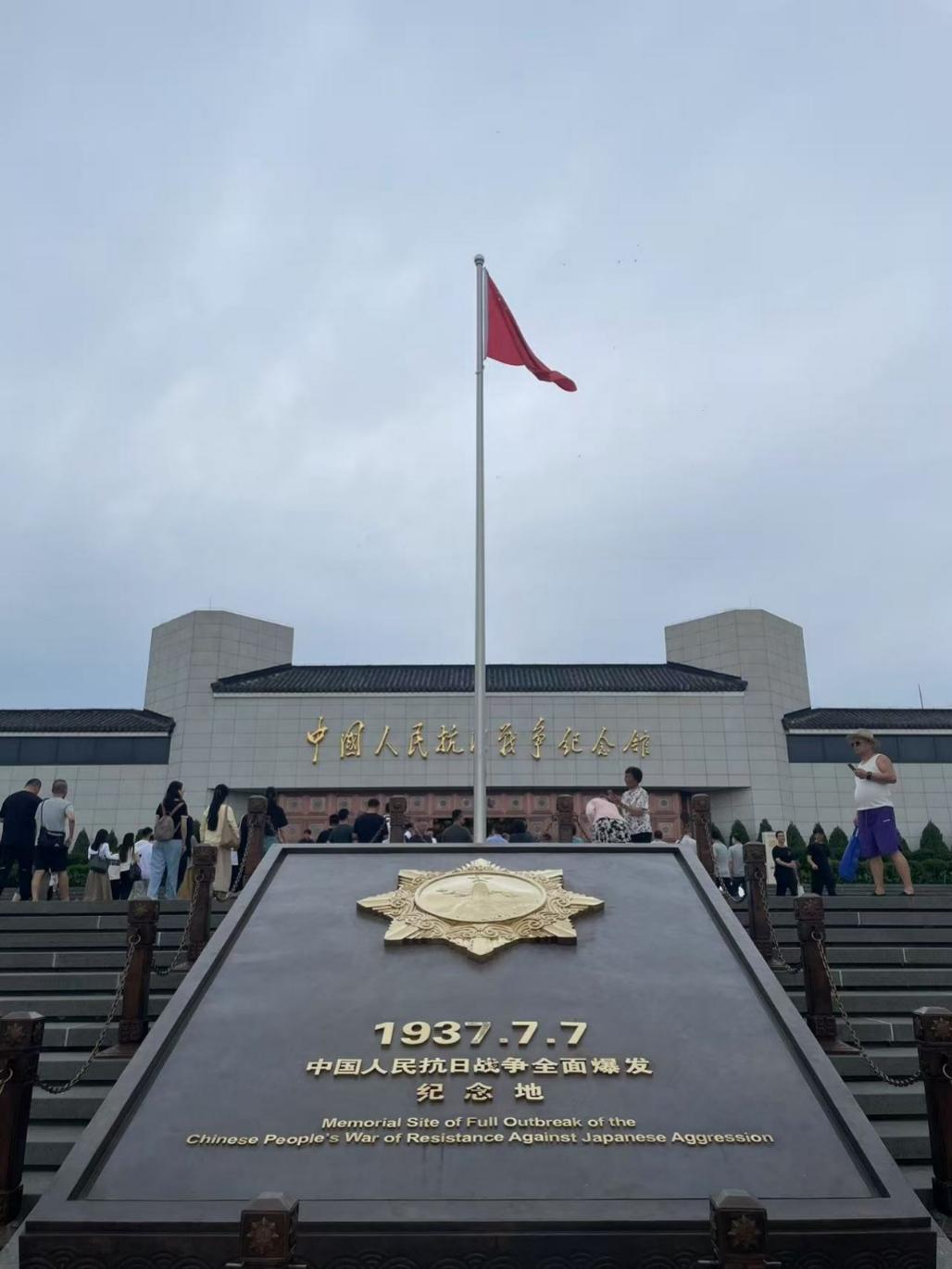
Photo shows visitors in front of the Museum of the War of Chinese People's Resistance Against Japanese Aggression. (Photo by Pedro Loeher)
This year, China celebrates its resistance against one of the most brutal acts of aggression in the country's history. From 1931 to 1945, China faced arguably one of the most perilous moment that any nation has ever dared to face.
?Analyzing this traumatic event as a foreign student gives me a different perspective. Given my background as someone who lived his entire life in the Global South, I can notice with my own eyes the scars marking where the colonial claw was once trying to enclose its grip.
?In my quest to better understand China, I have come across a horrible episode whose disgraceful dimensions I wasn't fully aware of: the Japanese aggression in China.
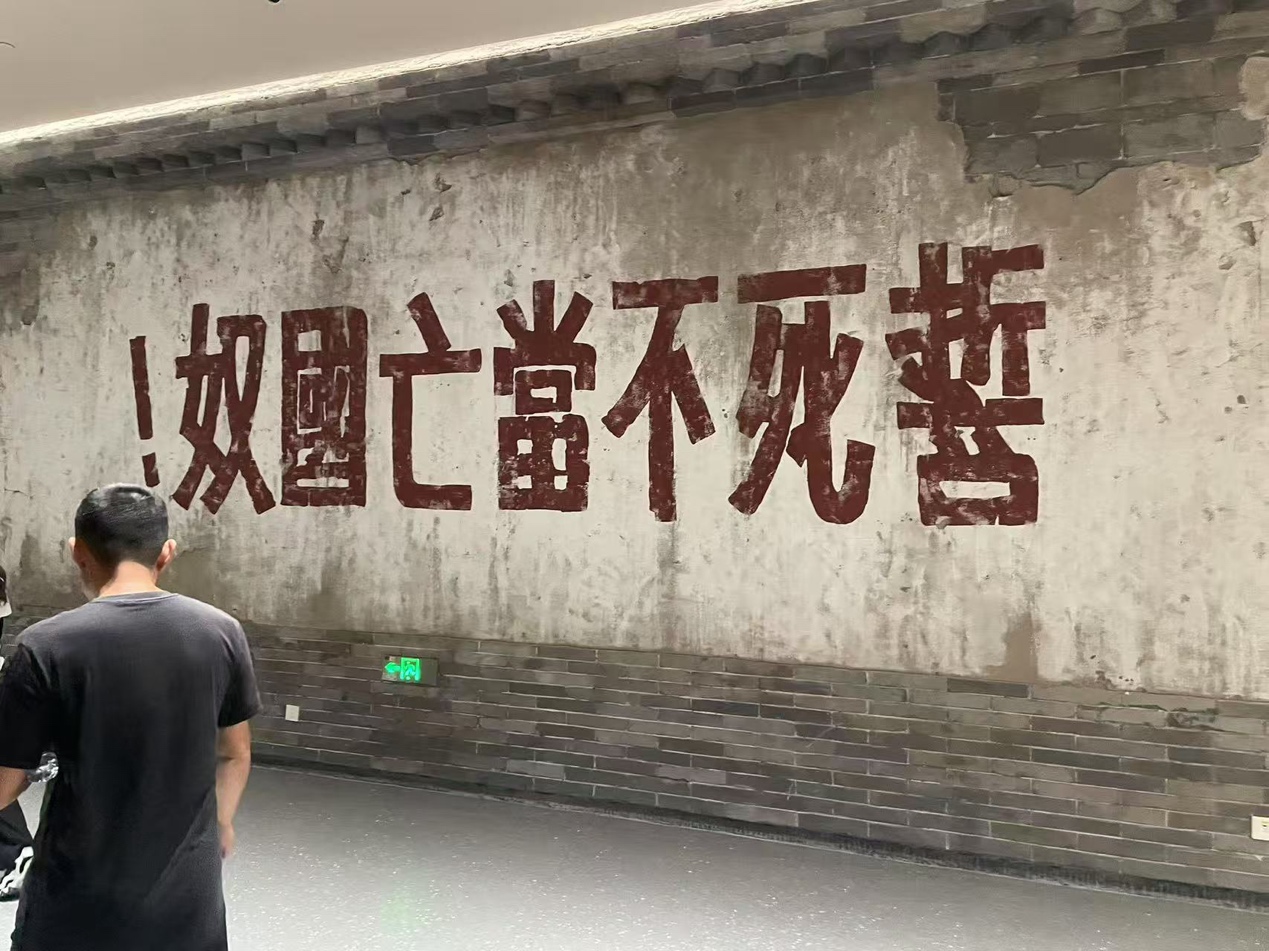
This slogan literally means "Swear to the death never to be slaves of a conquered nation" at the Museum of the War of Chinese People's Resistance Against Japanese Aggression. It leaves me with a deep impression on the Chinese people's resistance against the Japanese invasion. (Photo by Pedro Loeher)
I would argue that our locality plays a key role in our overall lack of knowledge in this matter, since we are geographically a Western country and therefore under their socio-political influence. But then, that would mean overlooking the consequences of years of historical revisionism and the systematic erasure of the dreadful role played by Japan from the late 19th to the mid-20th century. Nevertheless, this does not change the fact that we have a biased perspective regarding the Second World War, with the attack on Pearl Harbor being the most quoted example of Japanese action—with no worthwhile mention of the atrocities that had been happening in China since long before the war broke out in the West.
Studying and talking about wars and their consequences is crucial not only for the memory of a given nation but also to understand how those complex and violent interactions shaped the world we currently live in. In this sense, even though it is a delicate topic, I share a similar perspective as the historian Margaret MacMillan: "We may prefer to avert our eyes from what is so often a grim and depressing subject, but we should not." This sentence echoed in my head while I walked in the Museum of the War of Chinese People's Resistance Against Japanese Aggression, where each sculpture conveys a unique sentiment—from the horrors that Chinese people faced during the war to their indomitable spirit of national salvation.
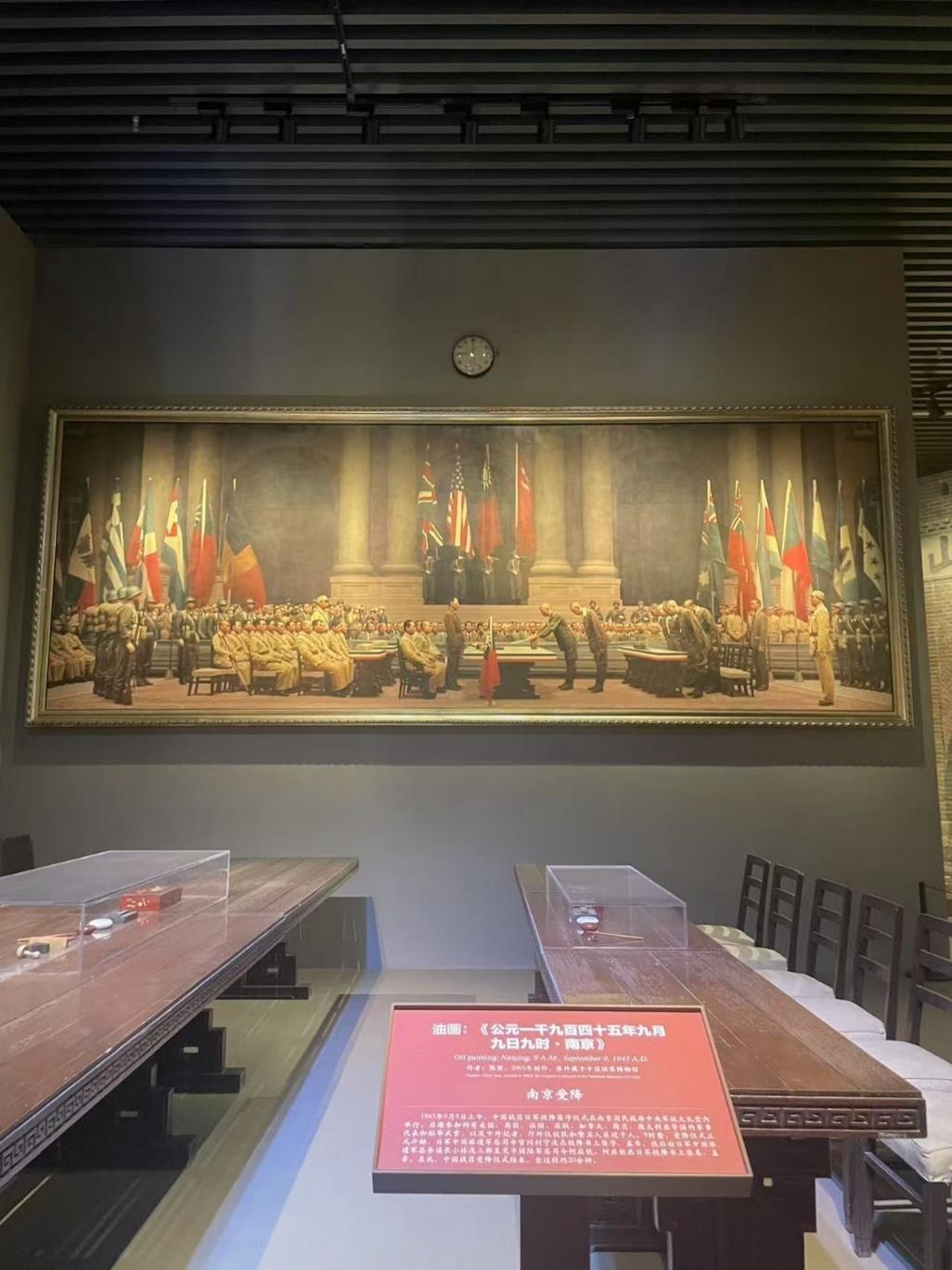
An oil painting at Museum of the War of Chinese People's Resistance Against Japanese Aggression shows the ceremony for Japan's surrender held in Nanjing on Sept. 9, 1945. (Photo by Pedro Loeher)
That is why I believe that historical drama works, such as "Dead to Rights," are of utmost importance. Contrary to the Western belief that they fuel anger and animosity between China and Japan, these kinds of works are an indivisible part of what constitutes the national identity of the Chinese people. The film conveys the crude reality of war, showing that the brutality of conflicts is faced by soldiers and civilians alike. The experience of watching it — combined with my previous visit to the Museum of the War of Chinese People's Resistance Against Japanese Aggression — enlarged my perspectives regarding this part of history.
?This year marks the 80th anniversary of two major global events, namely the victory of the World Anti-Fascism War and the founding of the United Nations. From a historical perspective, eighty years was not so long ago—and a rather short distance in the Chinese path—which makes the task of remembering and honoring the sacrifice the Chinese people made for the World Anti-Fascist War even more important.
In a world where Class A war criminals are still enshrined and their successors in the government keep silent about reckoning their past mistakes, it is important not only for the Chinese to uphold their legacy of struggle but also for us members of the Global South to help keep alive the memory of this not-so-distant past. As stated in the famous quote by George Santayana, "Those who cannot remember the past are condemned to repeat it." Assuming the wrongdoings and—most importantly—preventing them from happening again are the only way that we can envision a peaceful future and keep paving together our new paths.
Pedro Loeher is a student from Brazil who is currently studying Chinese History at Southwest University in Chongqing, China.
Photos
Related Stories
- 80 years since anti-fascist victory
- Feature: Remembering George Hogg, heroic British journalist supporting Chinese in WWII
- Photo exhibition held in San Francisco to commemorate 80th anniv. of victory of World Anti-Fascist War
- Chinese community in Botswana marks victory of World Anti-Fascist War
- China holds second rehearsal for event marking 80th anniversary of victory over Japanese aggression, fascism
- New evidence of historical Japanese germ-warfare unit released
Copyright © 2025 People's Daily Online. All Rights Reserved.






